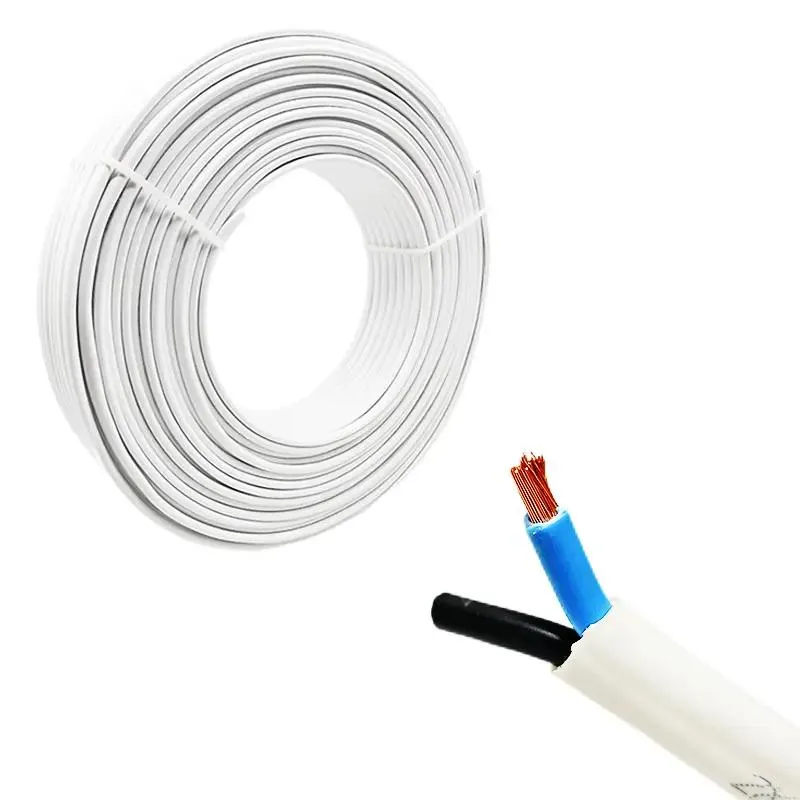
How to Choose Building Wire for Residential Projects
Selecting the right building wire for your home is a critical step in ensuring safety, efficiency, and long-term reliability. With so many options available, understanding the basics of copper building wire, building wire types, and compliance standards can simplify the decision-making process. This guide will walk you through key considerations to help you make an informed choice for your residential project.

Unveiling the Importance of Building Wire
Imagine your home as a living organism, with building wire serving as its circulatory system, transporting the life - giving energy of electricity to every corner. From powering the lights that illuminate your evenings to enabling your refrigerator to keep food fresh, building wire is integral to the functionality of your residential space.
When considering building wire for a residential project, one of the key aspects is wire gauge. For example, a 14 - gauge wire is commonly used for general lighting circuits in a typical home. This is because the electrical load of lights is relatively low, and a 14 - gauge wire can handle the current without overheating. However, for circuits that power major appliances like air conditioners or electric stoves, a thicker 10 - or 12 - gauge wire is necessary. The insulation material of the building wire also matters. Thermoplastic insulation is popular for its durability and resistance to abrasion, protecting the wire from damage during installation and over time. Understanding these basic elements is crucial, as using the wrong wire can lead to electrical failures, inefficiencies, and even pose a significant safety risk, such as the potential for electrical fires.
The Superiority of Copper Building Wire
Among the materials available for building wire types, copper building wire shines as the premier choice for residential applications. Copper's electrical conductivity is truly remarkable. To put it in perspective, compared to aluminum, which is sometimes used in building wires, copper can carry the same amount of electrical current with approximately 40% less resistance. This lower resistance translates directly into energy savings. For a household with multiple appliances running simultaneously, over the course of a year, the reduced power loss due to copper's conductivity can lead to a noticeable decrease in electricity bills.
The durability of copper building wire is another significant advantage. Copper is highly resistant to corrosion, even in environments with high humidity. In a bathroom or a laundry room, where moisture is present, copper wires can maintain their electrical performance for decades. Additionally, copper wires are more flexible than many other materials. During the installation process, electricians often need to bend and route wires through tight spaces and around corners. The flexibility of copper building wire makes this task much easier, reducing installation time and potential damage to the wire.
Navigating the Diverse Landscape of Building Wire Types
The world of building wire types is diverse, with each type tailored to specific residential needs.H03Z1Z1-F;300/300V for portable electrode-carriers use.It's crucial to follow the table's data of the user guide CEI 20-40 regarding the service cycles, the intensities of current and the voltage fall.In order to reduce the effects of the alternating current on the voltage fall, the cables forming the welding circuit must be kept as close as possible.
H05Z1Z1H2-F;300/500V, These cables may be used when halogen-free,low smoke and corrosive gas properties are required in case of fire.For moderate demands in the house,kitchen and office,for house equipment in damp rooms.Suitable for cooking and heating equipment,providing that the cable is not in contact with hot components or heat radiation.
H05Z1Z1-F;300/500VUsed as an indoor general wiring cable primarily for installations in public areas. Examples include use on pendant lighting drops or as a general supply lead within hospital or airport projects. For installation where fire, smoke emission and toxic fumes create a potential risk to life and equipment.
FAQs About Building Wire for Residential Projects
Addressing common questions can clarify doubts and highlight the value of quality building wire.
What Are the Advantages of Copper Building Wire Over Aluminum?
Copper building wire offers better conductivity, durability, and corrosion resistance. While aluminum is lighter and cheaper, it requires larger gauges and special connectors, which can increase long-term maintenance costs.
How Do Building Wire Types Impact Installation Costs?
Specialized building wire types, like UF or MC, may cost more upfront due to added protections (e.g., waterproofing or armor). However, they reduce future repair expenses by preventing damage.
Can I Use Indoor Building Wire for Outdoor Projects?
No. Outdoor installations require building wire types rated for moisture and temperature fluctuations, such as UF or THWN. Indoor wires lack these protections and pose safety risks.
Why Is Wire Gauge Important in Building Wire Selection?
Incorrect gauge sizes can lead to overheating or circuit failure. Always consult an electrician to match the building wire gauge to your circuit’s amperage requirements.
Is Copper Building Wire Worth the Higher Cost?
Absolutely. Copper building wire lasts longer, performs better under high loads, and requires fewer maintenance checks, saving money over time.
Choosing the right building wire, understanding the benefits of copper building wire, and selecting appropriate building wire types are essential for a safe and efficient home electrical system. By prioritizing quality and compliance, you’ll ensure your residential project stands the test of time. Always consult a licensed electrician for complex installations to guarantee safety and adherence to local codes.
-
The Quantum Leap of XLPE Cable in Power DistributionBerriakMay.29,2025
-
Mastering the Essentials of Building WireBerriakMay.29,2025
-
Innovative Horizons of Rubber Trailing CablesBerriakMay.29,2025
-
Exploring the Versatile World of Rubber CablesBerriakMay.29,2025
-
Decoding the Mysteries of Building CablesBerriakMay.29,2025
-
Advancements Redefining Control Cable TechnologyBerriakMay.29,2025
-
Why It's Time to Replace Old Rubber CablesBerriakMay.28,2025














